Introduction to the Knowledge Industry
Are you thinking about a new direction in your career? Curious about how the knowledge industry could spice up your professional life? Maybe the idea of consulting or coaching has caught your eye, and you’re considering the leap into this dynamic field. These questions are crucial if you’re a business leader aiming to untangle the ever-changing business world.
Discover the exciting world of business consulting and coaching in this guide. Whether you’re planning to use your experience to kick-start a coaching or consulting business or simply enhance your strategic capabilities, this article is packed with valuable insights. Learn from industry experts like Brandt & Partners on how to make a successful shift to the knowledge industry. We’ll show you how to use your skills to make a significant impact, ensuring you thrive in your new role.
Why Consider the Knowledge Industry?
Many executives are shifting to the Knowledge Industry, and it’s easy to see why. This field offers incredible chances for personal and professional growth. If you’ve got years of experience and a wealth of knowledge, why not use it to help others succeed? Consulting or coaching could be a great new chapter in your career.
Think about the freedom of applying your skills to help various organizations thrive. As a consultant, you can make a significant impact, advising companies on strategies that drive success. The beauty of this role is that you can influence many more businesses than you could as an in-house executive.
The flexibility of coaching or consulting is a huge plus. You set your own hours and choose who you work with. Imagine taking important calls from a home office or holding coaching sessions while sitting in a café. This career path offers complete control over your schedule and environment, which is a big change from the 9-to-5 grind.
Starting in this industry can also be more affordable than many people think. Unlike opening a factory, which requires a lot of upfront investment, launching a consulting service is mostly about leveraging the expertise you already have. This means you can start your own business with very little financial stress.
What Are the Benefits of Starting in This Sector?
Entering the Knowledge Industry might just be the best decision you make for balancing your professional and personal life. Here’s how it can revolutionize the way you work:
- Low Start-Up Costs: You don’t need a lot of money to get started. If you have a skill or expertise, you can turn that into a consultancy or coaching service almost immediately. For example, a digital marketing expert can start offering consultations with just a laptop and internet connection.
- Flexible Hours: You decide when you work. If you’re a morning person, you can schedule your sessions early. If you prefer working at night, that’s possible too. This flexibility allows you to work at your peak times for maximum productivity.
- Work from Anywhere: Say goodbye to the daily commute. In the Knowledge Industry, you can work from home, a local coffee shop, or even while traveling. This flexibility not only saves time but also allows you to choose environments that boost your creativity and efficiency.
Flexible hours and the ability to work from anywhere aren’t just convenient; they can lead to better work output and a happier, more balanced life. Imagine starting your day with a walk in the park instead of rushing to an office, or taking a mid-week break to spend time with family without worrying about office hours. These are the kinds of benefits that can truly enhance your quality of life.
Self-Assessment and Goal Setting
Jumping into a new career in the Knowledge Industry, such as consulting or coaching, is thrilling but requires careful planning. Here’s how you can get started on the right foot, by focusing on self-assessment and setting realistic goals.
- Know Your Strengths: Think about what you are good at. Are you great at solving problems, or perhaps you have a knack for motivating others? Reflect on your past job roles and identify the skills that helped you succeed. These are the strengths you can bring into your new role as a consultant or coach.
- Evaluate Your Skills: Take an honest look at yourself. It’s okay to recognize areas that might need improvement. For example, if public speaking isn’t your strongest suit, consider joining a workshop or a course to boost your confidence and effectiveness in this area.
- Set Achievable Goals: Setting clear goals is crucial. Use the SMART framework to craft your goals: Specific, Measurable, Achievable, Relevant, and Time-bound. This might mean setting a goal to acquire three new clients within your first six months or aiming to complete a certification in your field by the end of the year.
Starting with a strong understanding of your own abilities and clear, realistic goals can dramatically enhance your chances of success in the Knowledge Industry. Each step you take towards understanding and improving yourself builds a stronger foundation for your future endeavors.
Conducting Market Research
Jumping into a competitive industry can feel daunting, but with a few key strategies, you can carve out your niche and stand out. Here’s how to hit the ground running.
- Know Your Competition: Start by identifying who you’re up against. What are they doing well? How do they market their services? Understanding these details helps you find your edge. For example, if your competitors are strong in product variety but weak in customer service, focus on providing stellar support to win over their dissatisfied customers.
- Find Your Special Sauce: What can you offer that no one else can? Pinpointing this can make all the difference. It could be as simple as offering eco-friendly products if you’re in a market that’s lagging in sustainability. This makes your business not just another choice, but the choice for environmentally conscious consumers.
- Collect Data: Decisions should be backed by data. Use surveys, interviews, and industry reports to gather insights. Understanding trends and customer preferences can help you tailor your offerings more precisely. For instance, if data shows a growing demand for online shopping in your industry, strengthening your e-commerce capabilities could set you apart.
By knowing your competitors, defining what makes you unique, and making data-driven decisions, you’re not just participating in the market—you’re setting yourself up to lead it.
Creating Your Business Plan and Roadmap
Starting a consulting or coaching business can seem overwhelming, but breaking it down into manageable steps can make the process smoother. Here’s how you can set a strong foundation for your business:
- Define Your Business Model: Think about who you want to help, what problems you’ll solve, and how you’ll make money doing it. For instance, if you’re in health coaching, your model might focus on one-on-one sessions to help clients achieve their fitness goals. It can include group coaching, masterminds and many more ways to serve your clients.
- Detail Your Services: Be clear about what you offer. Will you provide individual consultations, group workshops, or online courses? Make sure your clients know exactly what they’re getting from you.
- Project Your Finances: Estimate how much money you expect to make and spend. Include all potential income sources and expenses, like marketing costs and office set up and the use of IT tools, etc. This helps you see if your business can be profitable and sustainable.
Creating a solid business plan is crucial. It acts as a roadmap, showing you where you’re going and how you’ll get there. With a clear plan, you can make informed decisions, attract investors, and track your progress. Investing time in developing a thorough business plan sets you up for success in the competitive world of consulting and coaching.
Developing Your Brand
Building a strong brand is crucial for standing out in a crowded market. The goal is to make your brand memorable, relatable, and trustworthy. Here are some simple yet effective strategies to help you craft a brand that resonates with your audience:
- Choosing the Right Name: Pick a name that’s easy to remember, pronounce, and gives a hint about what you do.
- Designing Your Logo: Your logo should be clear and recognizable at any size. Think about Apple’s apple or Nike’s swoosh – simple yet powerful. Use colors and shapes that reflect the personality of your brand.
- Defining Your Values: People connect with brands that have clear values. If you prioritize sustainability, let that shine through in your messaging and operations. This authenticity builds trust and loyalty.
A strong brand does more than attract attention; it builds connections. Make sure your brand’s voice is consistent across all platforms, from your website to social media. This consistency helps people feel familiar with your brand, turning first-time viewers into long-term supporters. Remember, the key to branding isn’t just in the visuals but also in the experience you provide.
Effective Marketing Strategies
Boosting your online presence is crucial for growing your consultancy or coaching business. Here are a few straightforward steps you can take to make your online impact stronger and more effective.
- Engage on Social Media: Use platforms like LinkedIn daily and consistently. Share tips, respond to trends, and connect with your audience. This personal touch helps you build trust and establish your expertise.
- Create Value-Driven Content: Focus on producing materials that solve problems. Blog posts that offer practical advice or videos that explain complex ideas in simple terms can be very effective. This is your chance to show off your knowledge and help others.
- Optimize Your Website: Make sure your website is easy to use and mobile-friendly. Use search engine optimization (SEO) techniques to improve your site’s visibility. This means more people can find you when they need your services.
By taking these steps, not only do you enhance your online presence, but you also provide real value to potential clients, increasing the likelihood they’ll choose your services over others.
Networking: Why and How?
Networking is essential if you’re looking to thrive in consulting or coaching. It’s not just about collecting business cards; it’s about building genuine relationships. Think of it as planting seeds that you will cultivate.
- Attend Industry Events: Make it a point to go to conferences and workshops. Here, you’ll meet like-minded professionals. Don’t just listen to talks; engage with speakers and attendees. For example, if you’re at a digital marketing conference, join discussions on the latest trends and exchange ideas.
- Consider joining a Network: In case you don’t want to build all on your own, consider joining a network that already works with proven processes, tools and products. The exchange of information and insights helps you boost your ramp up and to achieve results easier and faster.
- Consistent Communication: This is key. Send emails or messages to check in with your contacts every now and then. Maybe share an article you think they’d like, or congratulate them on a recent achievement. Small gestures show you value the relationship. Use platforms like LinkedIn or industry-specific forums to keep the conversation going. Share your thoughts on recent developments, or ask for feedback on your ideas. It’s a convenient way to stay in touch and share knowledge, even from a distance.
Finding a mentor can also be a game-changer. Look for someone who has the career path you aspire to. This can usually find when joining a network. They can offer priceless advice and insights from their own experiences. A good mentor can help steer you away from common pitfalls and towards better strategies.
Remember, the goal is to build relationships that are mutually beneficial. Whether it’s sharing resources, providing support, or collaborating on projects, these connections can open doors to new opportunities and help you grow both personally and professionally.
Using Your Expertise to Succeed
Jumping into the world of consulting or coaching with your expertise is exciting! To truly make an impact and keep your business ahead, it’s crucial to stay sharp and adaptable. Here’s how you can use your knowledge effectively and become a go-to expert in your field.
First off, make learning a daily habit. The business world is fast-changing, and keeping up with trends is essential. You could read industry blogs, attend webinars, or even take short courses. This keeps your skills fresh and your ideas innovative.
Being adaptable is just as important. Every client is different, and what worked for one might not work for another. For instance, a strategy that succeeds in a tech startup may flop in a traditional retail setting. Listen to your clients, understand their unique challenges, and customize your approach. This flexibility not only helps solve their issues more effectively but also builds strong, trusting relationships.
Don’t forget the power of networking. Connecting with other professionals isn’t just about exchanging business cards. It’s about sharing knowledge, learning from others’ experiences, and sometimes, forming partnerships that can lead to new opportunities. Whether it’s through online forums, community events, or professional groups, expanding your network can open doors that you didn’t even know existed.
In summary, to thrive in consulting or coaching, focus on continuous learning and being adaptable. Keep your skill set sharp and your mind open to different ways of solving problems. Build a strong network that supports and grows with you. With these strategies, you’ll be well on your way to becoming a trusted, effective leader in your field.
Conclusion and Next Steps
By now, you’ve got a clearer picture of how to dive into the consulting or coaching world. We’ve touched on everything from the perks like low start-up costs and flexible hours, to vital steps such as understanding yourself, researching your market, and laying out a solid business plan. This knowledge opens doors to a career that not only meets your financial needs but also feeds your passion.
Entering the Knowledge Industry means you can create a significant impact, maintain a great work-life balance, and enjoy a fulfilling career. It’s all about using what you know to carve out your own path. Follow the roadmap we’ve discussed: assess, plan, market, and network. These steps are your foundation for a thriving future in consulting or coaching.
If you want a bit more guidance, consider connecting with Brandt & Partners. Their expertise in consulting and coaching could be just what you need to smooth out the bumps along your journey. They’re pros at enhancing business operations, boosting leadership skills, and fostering growth. With their support, you’re set up for not just starting, but excelling in your new venture.
So, what’s stopping you? Embrace the challenge and get moving on your consulting or coaching dream. Remember, it’s not just about launching a business—but growing and adapting continuously to stay on top. Ready to take that next step and thrive in the dynamic world of the Knowledge Industry?






